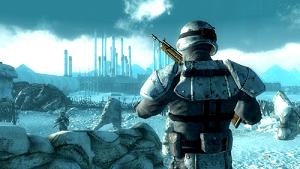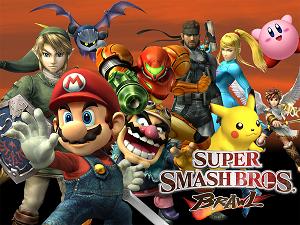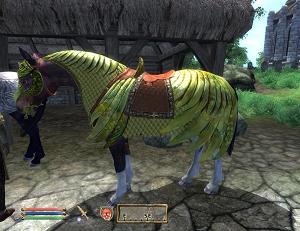The Pitfalls of DLC
 | | "Operation: Anchorage" is the first of several overpriced add-ons to Fallout 3 |
With last week's release of downloadable content for Fallout 3, it seems appropriate to discuss the nature of downloadable content in video games. While bonus levels, add-ons, and much needed patches can keep a game at the forefront of a gamer's mind and breathe fresh life into a stale experience, DLC is, for the most part, an excuse for lazy game developers and a goldmine of easy-to-manufacture crap that people will waste money on. And while there are a few examples of DLC done right (Halo 3, Rock Band), there are many ways in which DLC can go terribly wrong. The following are just a few recent examples.
The first major problem with DLC is the crutch of patching. Game developers in a rush to release a game at the right time will often put an unpolished game on store shelves, knowing that, within a few months of release, they can patch up many of the bugs and other problems with a free download. Fallout 3 failed to hit number one on this site's list of Top 10 Video Games of 2008 for precisely that reason; it was released with an inexcusable number of bugs, glitches, and game-killing crashes.
 | | Nintendo doing things right: no patches, no add-ons, and no excuses |
I understand that it's much easier to release a game and get instant feedback than it is to spend several months beta testing a new game, but developers should do what's best for the game rather than what's easiest and cheapest for the developer. Grand Theft Auto IV and Super Smash Bros. Brawl are games in which the developers chose to hold off on releasing the game so that they could work out the kinks, and the results speak for themselves; while neither game is perfect, both are extremely well-polished masterworks that didn't need to be patched within two months of their releases (GTA IV did get a patch shortly after release, but the need for it wasn't as extreme as it was with Fallout 3).
If a developer is going to release an unfinished game, they should offer it at a discounted price. It's tantamount to a movie studio putting out a movie before post-production is finished and then, a few months after the movie has already hit theaters, offering a cheap DVD with all the effects and editing completed. There would be no excuse for such a ludicrous market strategy in Hollywood, and there should be no excuse for it in the gaming industry either.
This doesn't even take into account the problem that not all gamers are hooked up to the Internet and not all gamers have a hard drive on their machine that can hold fifty different patches for their game library.
 | | Lara Croft has really big add-ons |
Then there's what most people think of when they think of DLC: extra content. Fallout 3's recent DLC, "Operation: Anchorage," is a perfect example. For ten bucks, players get a neat new series of quests added seemlessly into the game. The problem isn't the quality, it's the quantity. Ten bucks for two or three hours of content? Really? Consider that the full game has about a hundred hours of total content and retails for sixty dollars. By the math, that's sixty cents for every hour, meaning that a three-hour long add-on should retail for $1.80 (or that a ten dollar add-on should include over sixteen hours of content). Any way you slice it, ten bucks is a rip-off.
But that's not the greatest sin when it comes to additional content. After all, "Operation: Anchorage" is a quality product and a fun experience, and if it's overpriced, it's the fault of the consumer and the swings of supply and demand. You can't fault game developers for squeezing money out of such willing customers. No, the greatest sin is when a game developer surgically removes parts of a full game and then offers them at a steep price a month or two after retail as add-on content. This is exactly what happened with Tomb Raider: Underworld.
Disgruntled former employees at floundering game developer Crystal Dynamics spilled the beans by admitting that large sections of the game were deliberately held back from the retail product so that those sections of the storyline could be released later as overpriced DLC. As a result, the game that was put on store shelves is painfully short (a six hour experience, by most reports) and feels incomplete. The two downloadable add-ons coming to Xbox Live will probably cost ten dollars a piece, meaning that the full game will essentially cost players eighty dollars instead of sixty.
 | | You too can put your horse in this beautiful armor (for a small real world fee, of course) |
There are other types of add-ons too (usually referred to as "horse armor" in memory of Oblivion's dumbest add-on). For example, in Dead Space, you can purchase advanced armor suits, weaponry, and skins for your character. This kind of stuff, if you ask me, is ridiculously silly and another example of stuff that should be in the game already as extras, easter eggs, and rewards for beating the story. If you're willing to spend a total of twenty-six dollars for all of Dead Space's pointless add-ons, you might as well send your money to me instead of throwing it away like that. Seriously, leave your e-mail address in the comments below and I'll get back to you with where you can send the check.
The fact remains that DLC could be a useful tool for creative developers and hungry gamers, but it is so abused by lazy executives in search of a quick buck that it should be far more regulated and controlled than it already is. Games that need to be patched immediately after release should not be released in the first place. Add-on content should be something legitimately conceived of and created after the game is finished--anything thought up before then should be put in the retail product to make a better game. And, finally, add-on content shouldn't seem overpriced in respect to the price of the retail game.
Even though I've been giving the company a lot of crap lately, at least Nintendo, for the most part, does DLC right by not doing it at all.
-e. magill, 02/02/2009
|
|